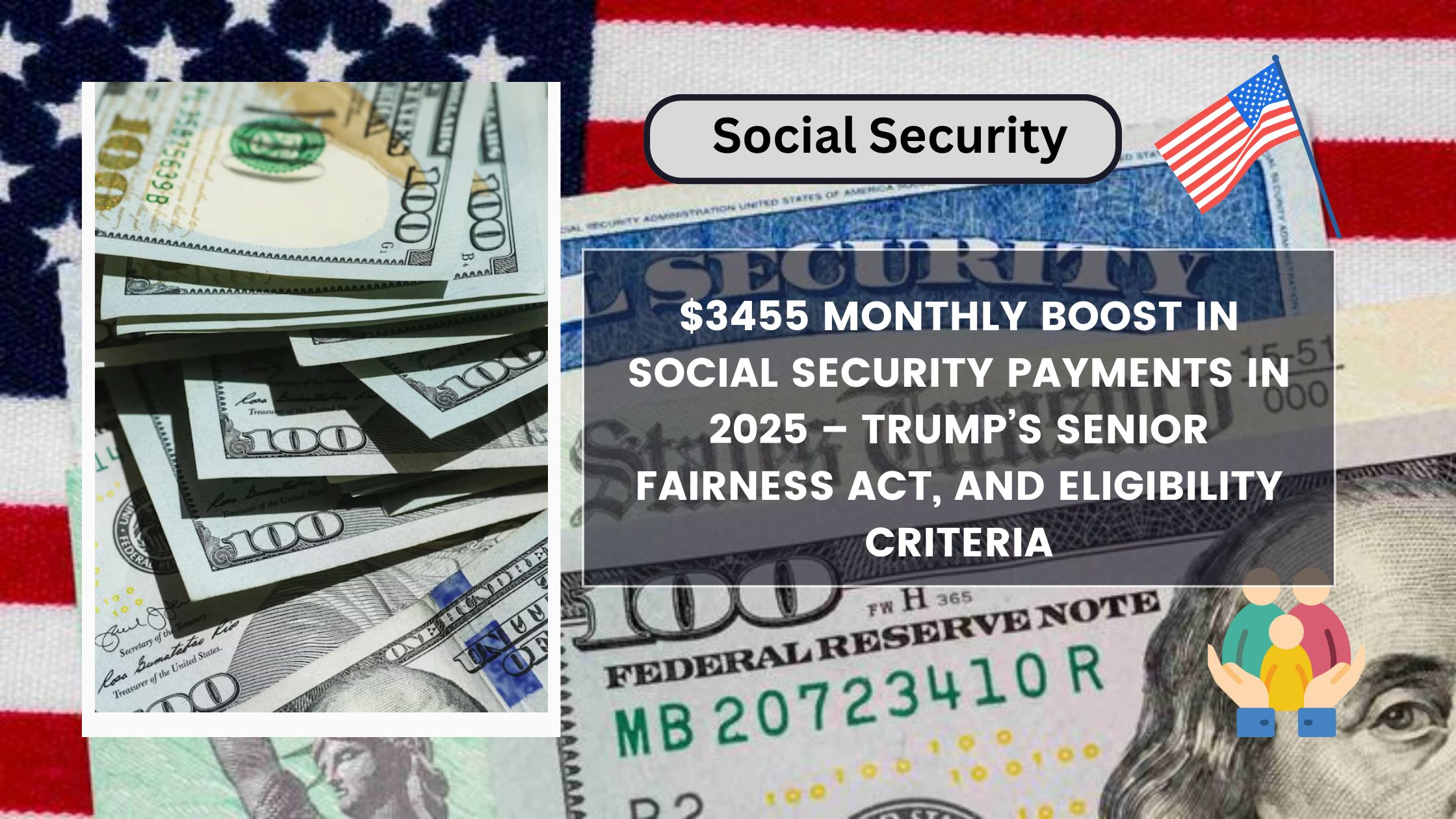The cost of living is rising, and for many senior citizens, Social Security payments are a lifeline. With the new Senior Fairness Act proposed under former President Donald Trump’s influence, retirees could see a significant $3455 monthly boost in Social Security payments in 2025. This initiative aims to provide better financial security for older Americans. But who qualifies, and how does it work? Let’s break it down in simple terms.
What is the Senior Fairness Act?
The Senior Fairness Act is a proposed law designed to increase monthly Social Security benefits. It intends to address inflation, improve living conditions for seniors, and ensure financial stability for retirees who depend on Social Security as their primary income source.
Key Goals of the Act:
- Increase Social Security payments to match inflation rates.
- Adjust benefit calculations to reflect modern economic conditions.
- Provide additional support to lower-income seniors.
- Extend financial benefits to more eligible retirees.
$3455 Monthly Social Security Increase Explained
The proposed increase of $3455 per month is based on economic adjustments and cost-of-living considerations. This figure represents the maximum benefit possible for eligible recipients. However, not all Social Security beneficiaries will receive this amount. The final payment depends on individual work history, earnings, and age at retirement.
Who is Eligible for the Increased Social Security Payments?
To qualify for the higher Social Security payments under the Senior Fairness Act, individuals must meet specific eligibility requirements:
1. Age Requirement
- Must be at least 62 years old to start receiving Social Security.
- Those who delay benefits until 70 years old may receive higher payments.
2. Work History
- Must have worked for at least 10 years (40 work credits).
- Higher lifetime earnings lead to higher monthly benefits.
3. Retirement Year
- Those retiring in 2025 under the new law may receive increased payments compared to past retirees.
4. Income Level
- Low-income seniors may receive extra support through additional benefits.
How to Apply for the Higher Social Security Benefits
If you believe you qualify for the $3455 monthly boost, follow these steps:
Step 1: Check Your Social Security Statement
- Visit SSA.gov to review your earnings history and estimated benefits.
Step 2: File for Benefits
- Apply online at the Social Security Administration (SSA) website.
- Call or visit a local SSA office for assistance.
Step 3: Provide Necessary Documents
- Proof of identity (ID, birth certificate, or passport).
- Employment history and income records.
- Bank details for direct deposits.
Potential Challenges and Limitations
While the Senior Fairness Act aims to provide financial relief, there are potential challenges:
- Congress Approval – The bill must pass through legislation before becoming law.
- Economic Impact – Increased payments could strain Social Security funds.
- Eligibility Restrictions – Not all seniors may receive the full $3455 amount.
Conclusion
The proposed $3455 monthly Social Security increase in 2025 under Trump’s Senior Fairness Act could significantly benefit retirees. However, eligibility depends on work history, retirement age, and income level. While this boost aims to improve senior citizens’ financial security, legislative approval and economic conditions will determine its success. If you’re nearing retirement, it’s essential to stay informed, check your benefits, and plan ahead for potential changes.
FAQs
1. Will every Social Security recipient receive the full $3455 increase?
No, the amount varies based on work history, earnings, and retirement age.
2. When will the Senior Fairness Act take effect?
If approved, it is expected to be implemented in early 2025.
3. How do I check if I qualify for the increase?
Visit SSA.gov to review your benefits and eligibility.
4. Will the increase be permanent?
That depends on Congressional approval and economic conditions.
